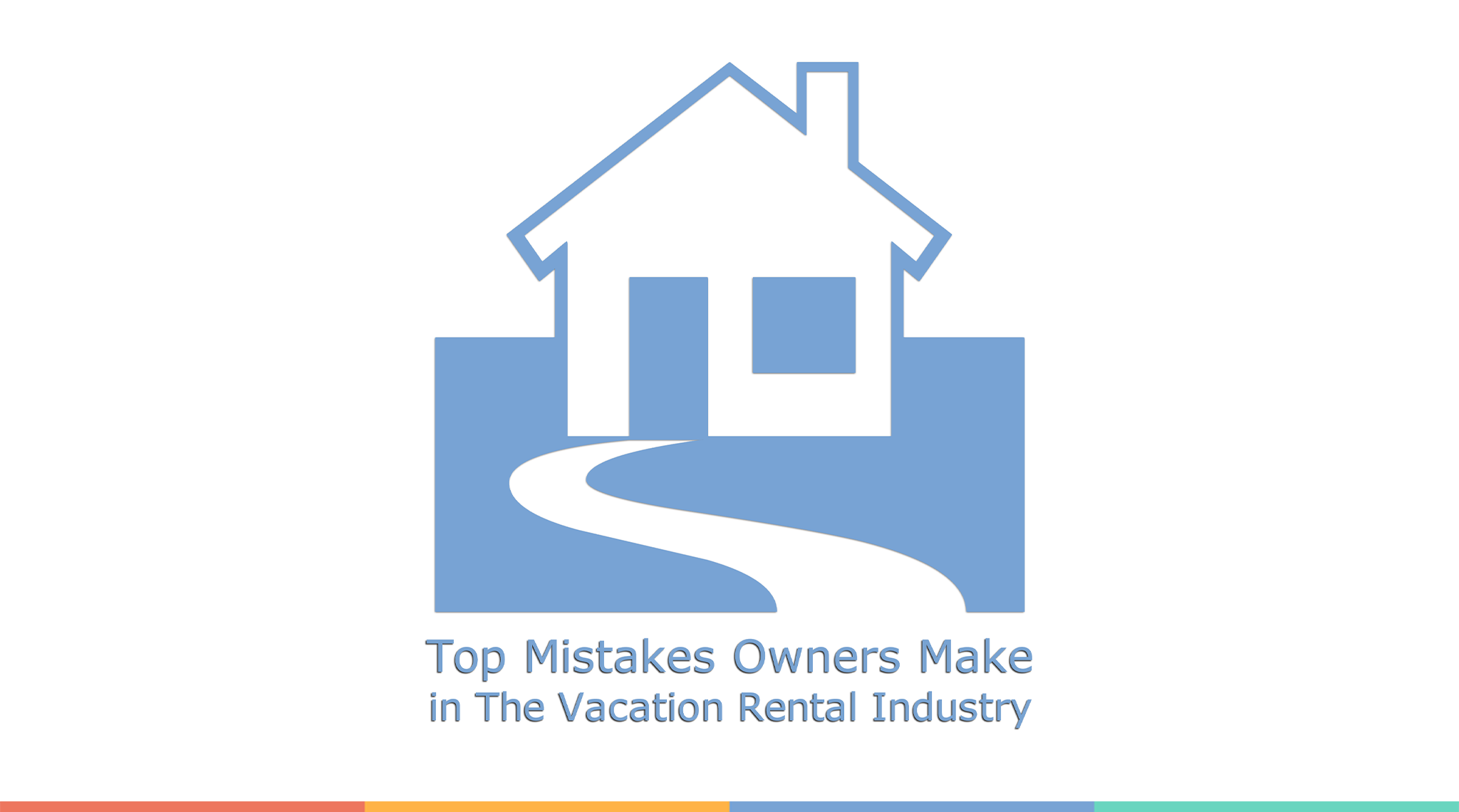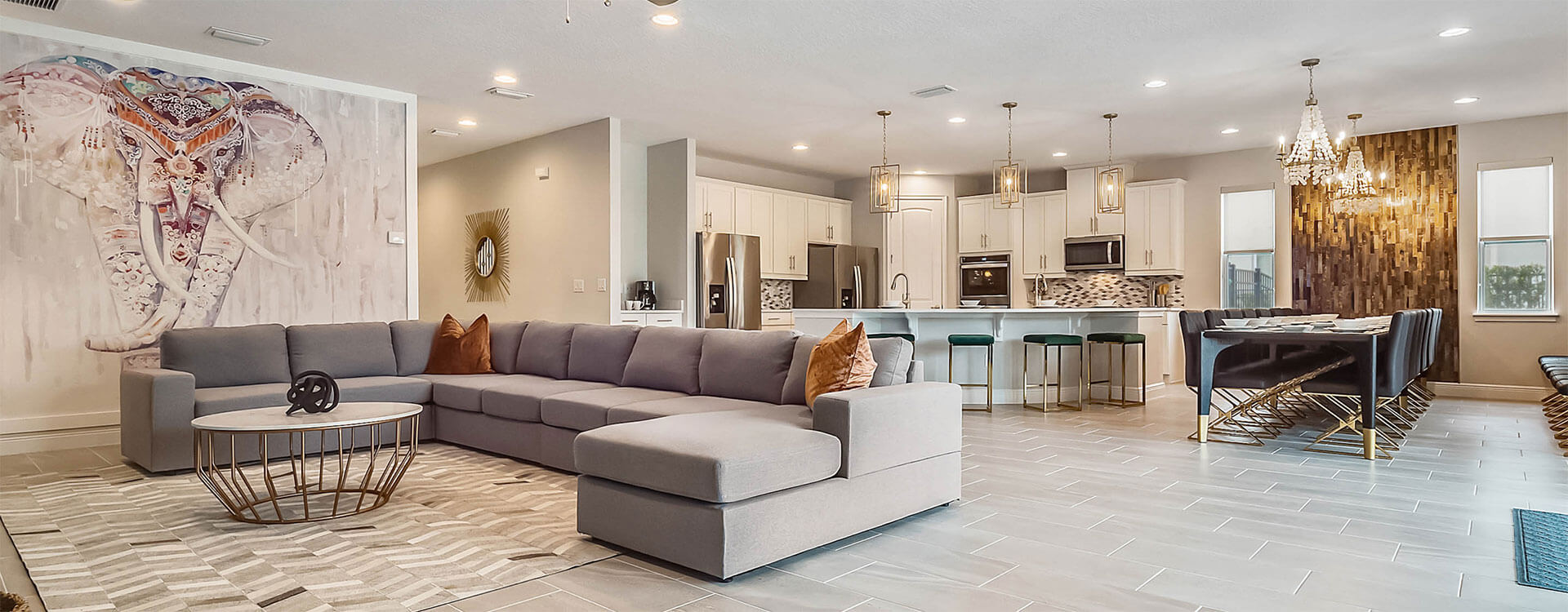Whether going it alone or considering partnering with a vacation rental management company, there are many possible pitfalls to avoid. Here are some of the top mistakes owners make when considering who and how to operate a vacation rental. Consider the following, and set up yourself up for long-lasting success.
✱ Assuming & Not Asking Questions
While the excitement of purchasing a vacation home can be exhilarating, don’t let that joy cloud your decision-making
- DON’T sign with the first PMC (property management company) that you speak with. Shop around and compare to get a better understanding of the available options, strategies, and to gather ideas if you’re considering going it alone.
- DON’T get “sold.” Some PMCs and sales folks are trying to get their commission and will say anything to get you to sign with them. Some contracts will even lock you in for months or even years. Be sure to get everything that you discuss verbally in writing.
- DON’T assume that guests know how vacation rentals work. If you’re going it alone you may have some hand-holding to do, which could take a substantial amount of time.
- DO get rental revenue projections before you sign up with anyone. If a company refuses to show you historicals or create a projection analysis for you, run in the opposite direction.
✱ Wrong Frame of Mind
There are 3 important things here:
- Owners with unrealistic revenue expectations. Element prioritizes transparency, as they believe all vacation rental companies should. PMCs should be willing to prepare a revenue projection analysis or show historicals for all prospective owners before any agreement is signed. This will give owners a rough estimate as to what they can expect. Most projections come with numerous disclaimers, but make sure you understand how they plan to reach the projected numbers then hold them accountable. Try scheduling a call or meeting once or twice a year in which performance for the previous period is discussed.
- Owners that treat their rental as anything less than a business. Your property represents so much more to you and your family, but once you start accepting rent, it becomes a business and will need to be treated as such to ensure its sustainability, your liability is limited and the risks are worth it financially.
- Slow start = bad thing. The truth is that rental momentum requires both time and alignment. Think of what you would look for when renting a property. Potential guests are looking for professional grade photos, an abundance of stellar reviews, and quick response times.
✱ Not Screening Guests
Absolutely avoidable
This mistake occurs far too often and is a potential nightmare waiting to happen. If you haven’t already, search for news stories about “vacation rentals.” Don’t let these horror stories scare you off, just remember to use effective methods in screening guests or inquire with your PMC on their procedures. It’s in everyone’s best interest to ensure it’s being done.
✱ Advertising on a Single Platform Versus Too Many
Think Goldilocks scenario – not too many, not too few
With a seemingly endless supply of marketing channels vying for your attention, many mistakes can be made. Research your options – certain booking channels simply don’t generate adequate bookings to justify their expenses and effort. Some have firm restrictions and terms, while others don’t share guest information. Not to mention percentage-based versus subscription-based fee structures. Quality PMCs will do this homework for owners and stay ahead of ever-changing trends.
✱ Not Utilizing a Rental Agreement
Florida is a very litigious state full of all sorts of crazy stories
The rental agreement is critical to the viability of your rental – the binding agreement between you and your guest, limiting liabilities and protecting all parties. Professional PMCs always know to use a well-written rental agreement prior to guests receiving the arrival information. A proper agreement typically includes stay dates, total trip cost, maximum occupancy, pet and smoking policies, and pool and spa regulations. And remember – just because something hasn’t happened yet doesn’t mean it won’t.
✱ Setting and Forgetting Rates
The cardinal sin of DIY owners!
If you take just one thing away from this article, please don’t set rates only once annually. Yield management is a practice said to have come from the airline industry’s efforts to capitalize on every single seat. In typical supply and demand fashion, base rates are set initially, but quickly and frequently adjusted in response to market demands. Keep your ear to the ground, pay attention to the data and don’t be afraid to adjust your rates up or down in order to maximize bookings. Remember – your property is perishable; unsold nights go spoiled.
✱ Not Setting and Following Policies
By failing to prepare, you’re preparing to fail.
There will often be gray areas with certain policies and procedures where you’ll want to help the guest, but not staying consistent in the grander scheme of things will almost always cause issues down the road. Quality PMCs enforce reasonable policies and procedures, which not only limit their liability, but the property’s as well. For owners thinking of going it alone, significant time should be spent developing your standard operating policies and procedures. This should always be completed before opening your home to guests but now is better than never if you’re already in operation. Consider how to deal with emergencies, your key procedures to ensure the safety of every guest, what your cancellation policies and screening processes are, and so on.
✱ Limited Contact Availability
Vacation rentals have come a long way, but still lag behind hotels in ease of booking.
Since staying in a vacation rental involves people’s personal homes, a screening process needs to take place, rental agreements need to be signed, and deposits and payments need to be received. This creates a lot of work for the individual or company managing the process. We find that roughly one in four inquires result in an actual booking. While you may believe you can balance your day job and your vacation rental tasks, you may want to examine the service you’re providing from a guest perspective. If a guest submits inquires for a handful of properties on Vrbo, and your response takes 48 hours while others responded in under 1 hour, who do you think the guest is most likely to book with?





